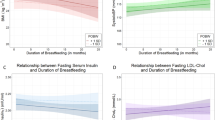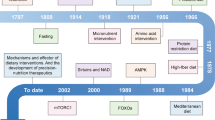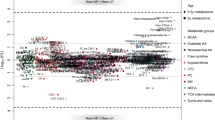Abstract
Knowledge of the human genome is helping us better understand nutrition. The nutrition–health relationship depends on the adaptive capacity of genes and their functioning with the diet consumed. The greater the efficiency of the system, the lower the metabolic wear suffered. Several epidemiological studies have reported that early-life metabolic imprinting occurs in Man. Both in the uterus and during the first years of life, under and overfed mother–child units imprint gene changes that lead to chronic metabolic problems in later life. Many other mechanisms can modify gene performance, such as gene silencing, gene compensation by a vitamin or a bioactive phytochemical, or simply DNA multiplication during cell reproduction and polyploidisation. The new area of science related to the lateral transfer of recombinant genes is opening new horizons to the nutritional sciences changing the nutritional value or the organoleptic characteristics of food, or even changing genes in persons at risk of chronic disease.
Many recent studies provide details about the kinds of diet, nutrients and other compounds that are the best for Man; biotechnology is becoming an instrument enabling food to be offered in the best of conditions.
This is a preview of subscription content, access via your institution
Access options
Subscribe to this journal
Receive 12 print issues and online access
$259.00 per year
only $21.58 per issue
Buy this article
- Purchase on Springer Link
- Instant access to full article PDF
Prices may be subject to local taxes which are calculated during checkout
Similar content being viewed by others
References
Aparicio S, Chapman J, Stupka E, Putnam N, Chia JM, Dehal P, Christoffels A, Rash S, Hoon S, Smit A, Gelpke MD, Roach J, Oh T, Ho IY, Wong M, Detter C, Verhoef F, Predki P, Tay A, Lucas S, Richardson P, Smith SF, Clark MS, Edwards YJ, Doggett N, Zharkikh A, Tavtigian SV, Pruss D, Barnstead M, Evans C, Baden H, Powell J, Glusman G, Rowen L, Hood L, Tan YH, Elgar G, Hawkins T, Venkatesh B, Rokhsar D & Brenner S (2002): Whole-genome shotgun assembly and analysis of the genome of Fugu rubripes. Science 297, 1301–1310.
Barker DJ (1992). The fetal origins of diseases of old age. Eur. J. Clin. Nutr. 46(Suppl), S3–S9.
Blot WJ, Li JY, Taylor PR, Guo W, Dawsey S, Wang GO, Yang CS, Zheng SF, Gail M, Li GY, Yu Y, Liu B, Tangrea J, Sun Y, Liu F, Fraumeni JF, Zhang YH, Li B (1993): Nutrition intervention trials in Linxian, China: supplementation with specific vitamin/mineral combinations, cancer-incidence and disease specific mortality in the general population. JNCI 85, 1483–1492.
Bouis HE, Lineback D & Schneeman B (2002): Special issue on biotechnology-derived nutritious foods for developing countries: needs, opportunities and barriers. Food Nutr. Bull. 23, 343–383.
Chávez A, Martínez C & Soberanes B (2001): Effect of malnutrition on human development. In: Nutrition and Anthropology. Biocultural Perspectives on Food and Nutrition, eds. AH Goodman, DL Dufour & GH Pelto, pp. 235–252. Cal, EUA: Mayfield Publishing Company.
Couzin J (2002): Quirks of fetal environment felt decades later. Science 296, 2167–2169.
Cruickshank JK (1989): Diabetes: contrast between people of black (west African), Indians and white European origin. In: Ethnic Factors in Health and Disease, eds JK Cruickshank & DG Beevers. London: Butterworth-Heinemann.
Expert panel of American Institute for Cancer Research (1997): Food, Nutrition and the Prevention of Cancer: A Global Perspective. World Cancer Research Institute. WCRF/AICR, Washington, DC.
Guet CC, Elowitz MB, Hsing W & Leiber S . (2002): Combinatorial synthesis of genetic networks. Science 296, 1466–1470.
Hedges SB & Kumes S (2002): Vertebrate genome compared. Science 297, 1283–1285.
Joseph KS & Kramer MS (1996): Review of the evidence of fetal and early childhood antecedents of adult chronic diseases. Epidemiol. Rev. 18, 158–174.
Kappen C (2002): Good diet hides genetic mutations (in: Pennisi E (2002): Evolution of developmental diversity. Evo-devo devotees eye ocular origins and more). Science 296, 1010–1011.
Khush ES (2002): The promise of biotechnology in addressing current nutritional problems in developing countries. Food Nutr. Bull. 23, 354–357.
León DA & Ben-Slomo Y . (1997): Pre-adult influences on cardiovascular diseases and cancer. In eds. Kuh D & Ben-Slomo. A Life-course Approach to Chronic Disease Epidemiology, pp 45–77. Oxford: Oxford University Press.
Leon DL (1998): Fetal growth and adult disease. Eur. J. Clin. Nutr. 52(Suppl.), S72–S82.
Plasterk RHA (2002): RNA silencing: the genome's immune system. Science 296, 1263–1265.
Russo VE, Martienssen RA & Riggs AD eds. (1996): Epigenetic Mechanisms of Gene Regulation. Cold Spring Harbor Laboratory Press: Plainview, NY.
Stein Z & Susser M (1975): The Dutch famine, 1944–1945, and the reproductive process. I. Effects on six indices at birth. Pediatr. Res. 9, 70–76.
Waterland RA & Garza C (1999): Potential mechanisms of metabolic imprinting that lead to chronic diseases. Am. J. Clin. Nutr. 69, 179–197.
Willett WC (2001): Eat, Drink, and Be Healthy: The Harvard Medical School Guide to Healthy Eating. Simon & Schuster: New York.
Author information
Authors and Affiliations
Contributions
Guarantor: A Chávez
Contributors: AC is the main contributor. MM contributed with information and references.
Corresponding author
Rights and permissions
About this article
Cite this article
Chávez, A., Muñoz de Chávez, M. Nutrigenomics in public health nutrition: short-term perspectives. Eur J Clin Nutr 57 (Suppl 1), S97–S100 (2003). https://doi.org/10.1038/sj.ejcn.1601809
Published:
Issue Date:
DOI: https://doi.org/10.1038/sj.ejcn.1601809



